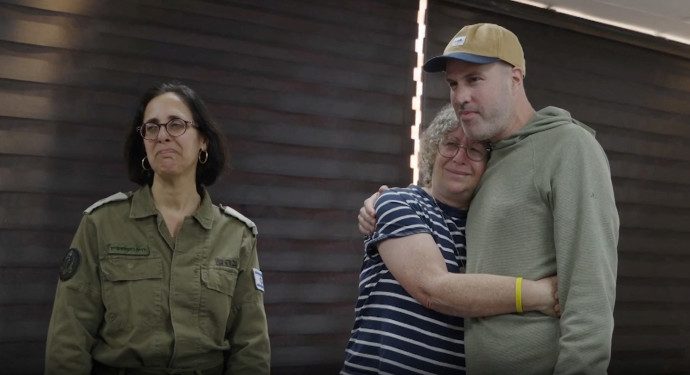Aviva Siegel spent last year fighting for the release of her husband, Keith, after being released in November 2023. After his return home after more than a year in captivity of Hamas, he learned that his son , that he thought he was dead, was, in fact, alive.
His release marks an important moment in the current negotiations for hostages still held by the terrorist organization. Keith and Aviva Siegel, a long -standing residents of Kibbutz Kfar Aza, were removed from their home on October 7, 2023, when Hamas terrorists launched a brutal attack on Israeli communities near the Gaza border. The couple was forced into their own vehicle and taken to the Gaza Strip. Aviva was released as part of a third cycle of hostage exchanges, but Keith remained in captivity until Saturday.
Since its release, Aviva has publicly spoke of the hostages of torment endure in captivity of Hamas, describing the inhuman conditions and the psychological trauma inflicted on underground people in tunnels under Gaza. “We were moved between 13 different places, above and below the ground, during the 51 days I was there,” she recalls in an interview with Israel Hayom. “In a case, we were placed in a tunnel where there was no air. We couldn’t speak. We could barely breathe.”
Aviva described moments of pure terror when she and Keith thought they would not survive. “I asked to die first so that I would not have to see Keith die in front of me,” she said in a separate interview with Kan. “Each day was a fight for survival. There was no air, no light. We were buried alive.”
The couple had built their life together for four decades in Kfar Aza, where they raised their four children and welcomed five grandchildren. Their youngest daughter, Shir, previously described her parents’ love for Kibbutz, saying: “They moved there over 40 years ago and fell in love with the place. It became their house, And they built their family there. “
The Liberation of Aviva in November brought a certain relief to the family, but their struggle was far from over. For more than a year, she campaigned tirelessly for the return of Keith, participating in rallies, speaking before government representatives and calling for world leaders to guarantee the release of all hostages. She traveled abroad, meeting the American president Joe Biden and other senior officials to put pressure for more diplomatic efforts. “I will never stop fighting until all our people is at home,” she said during a rally in Tel Aviv earlier this year.
In the months following his release, Aviva also became a vocal defender of young women still run by Hamas. Speaking before Knesset, she testified on sexual abuse and physical violence endured by female hostages. “These girls were transformed into puppets for their captors,” she said in an emotional address covered by Haaretz. “They were dressed in tight clothes, forced to endure humiliations that no human being should never suffer. We must not forget them.”
Physical and emotional scars
While Keith finds his family, their test is far from over. The physical and emotional scars left by more than a year in captivity will take time to cure. “I am grateful beyond the words that Keith is back,” Aviva said in a statement to Channel 12. “But our fight is not over.”
The circumstances surrounding the liberation of Keith remain vague, the Israeli officials continuing the negotiations to guarantee the return of other hostages. The Israeli government has promised to intensify its military and diplomatic efforts to ensure that no Israeli citizen remains in captivity in Hamas.


